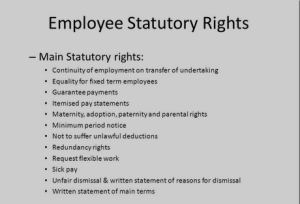Contract law is a fundamental aspect of business transactions, providing a legal framework for the creation, interpretation, and enforcement of agreements between parties. Here’s an overview of how contract law applies in business agreements and negotiations:

Contract Law: Its Application In Business Agreements And Negotiations
Table of Contents
Toggle1. Formation of a Contract:
- Offer and Acceptance: A contract begins with an offer made by one party and accepted by another, creating a mutual agreement.
- Intention to Create Legal Relations: Both parties must have a genuine intention to create legally binding obligations.
2. Elements of a Valid Contract:
- Legal Purpose: The purpose of the contract must be lawful.
- Consideration: There must be something of value exchanged between the parties.
- Legal Capacity: Parties must have the legal capacity to enter into a contract.
3. Types of Contracts:
- Express Contracts: Terms are explicitly stated, either orally or in writing..
- Unilateral Contracts: One party makes a promise in exchange for the other party’s performance.
- Bilateral Contracts: Both parties exchange promises.
4. Negotiation and Drafting:
- Pre-Contractual Negotiations: Parties engage in discussions and negotiations to reach mutually agreeable terms.
- Drafting: The final agreement is formalized in a written contract, often drafted by legal professionals.
5. Terms and Conditions:
- Clauses and Provisions: Contracts include specific terms, conditions, and provisions outlining the rights and obligations of each party.
- Conditions and Warranties: Conditions are fundamental terms, and warranties are secondary terms.
6. Performance and Obligations:
- Execution of the Contract: Parties are expected to fulfill their respective obligations as outlined in the contract.
- Time and Performance: Contracts may specify deadlines and performance criteria.
7. Breach of Contract:
- Material Breach: A significant violation of contract terms that may justify termination.
- Anticipatory Breach: One party indicates an unwillingness or inability to fulfill contractual obligations before the actual breach.
8. Remedies for Breach:
- Damages: Compensation for losses suffered due to the breach.
- Specific Performance: Court order to compel a party to fulfill contractual obligations.
- Rescission: Canceling the contract and restoring the parties to their pre-contractual positions.
9. Contract Interpretation:
- Plain Meaning Rule: Contract terms are interpreted based on their ordinary and usual meanings.
- Ambiguities: Ambiguous terms may be interpreted against the party that drafted the contract (contra proferentem).
10. Force Majeure and Frustration:
- Force Majeure Clause: Addresses unforeseen events that may excuse non-performance.
- Frustration of Purpose: Unexpected events make contract performance impossible or fundamentally different.
11. Dispute Resolution:
- Mediation and Arbitration: Alternative dispute resolution methods to resolve contract disputes outside of court.
- Litigation: Resolving disputes through the court system.
12. International Contracts:
- Choice of Law: Selecting the governing law for the contract, crucial in international transactions.
- Jurisdiction and Venue: Determining the appropriate court for dispute resolution.
13. Contract Review and Legal Counsel:
- Legal Review: Parties may seek legal advice before entering into contracts to ensure understanding and protection of their rights.
- Standard Form Contracts: Parties should be cautious with standardized contracts and understand their implications.
14. Electronic Contracts:
- E-Signature Laws: The legality of electronic signatures in forming contracts.
- Online Agreements: Terms and conditions for online transactions, often requiring user consent.
Conclusion:
Contract law provides the framework for establishing and enforcing agreements in business. A well-drafted and carefully negotiated contract helps prevent disputes and ensures that parties understand their rights and obligations. Legal professionals, such as contract attorneys, play a crucial role in advising businesses during negotiations, drafting contracts, and resolving disputes that may arise during the course of contractual relationships.
